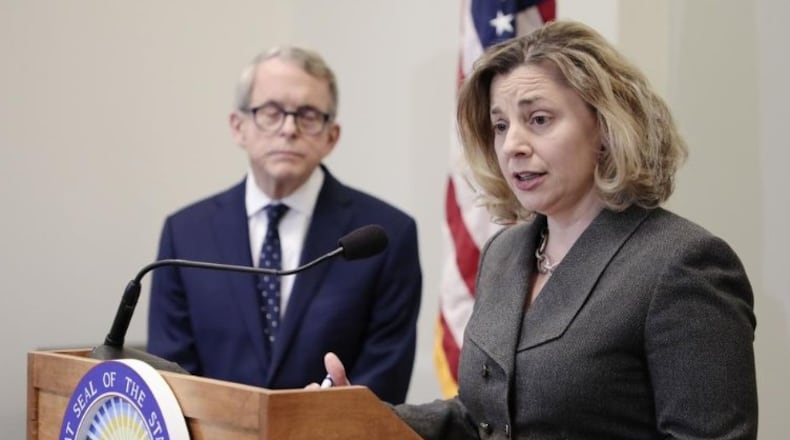The state constitution limits appropriations for capital projects to last for two years, but many projects take longer than that, Office of Budget and Management Director Kimberly Murnieks told the Senate Finance Committee. Therefore spending on the work underway has to be reauthorized for the two-year period that ends June 30, 2024.
“This reappropriation process is not intended as a vehicle for any new appropriations,” Murnieks said.
House and Senate committees are considering the bill simultaneously because it needs to pass by the end of March, said state Sen. Matt Dolan, R-Chagrin Falls, Senate Finance chair. Since bills normally take effect 90 days after passage, that would be just in time for the July 1 start of the new fiscal year.
The total cost of $2.09 billion is a “reasonable estimate,” but the final price for the ongoing work is likely to be less, Murnieks said. The spending is broken down by state agency and fund type, not by individual projects; but three-quarters of the money is split between the state public works commission, K-12 school construction fund and higher education, she said.
The COVID-19 pandemic slowed down many projects, Murnieks said. But Ohio is in good financial shape, ahead of projections in tax receipts and with its credit recently upgraded, she said.
Murnieks said inflation is impacting project bids, so some may need additional funding or cost cuts.
State Sen. George Lang, R-West Chester, asked if any previously approved projects have been left off the reappropriation bill. Murnieks said everything remains in the bill, unless it’s determined that a project can’t proceed for some reason or the affected community no longer wants it. In that case officials would seek to redirect the funding to an “applicable and appropriate” substitute project in that community, she said.
The state is well below its constitutional limit for bond debt, and will remain so even after the next capital projects budget, Murnieks said.
Murnieks spoke to the House Finance Committee on Tuesday, and that committee held a second hearing on the bill Wednesday at which no one testified.
About the Author

